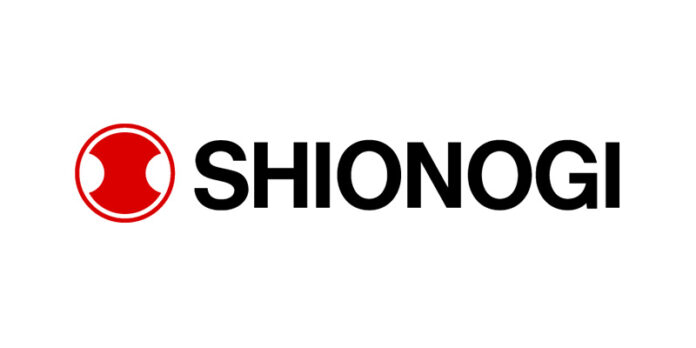OSAKA, Japan & CHENNAI, India & GENEVA, Switzerland & BOSTON– A new agreement is poised to accelerate antibiotic access for tens of thousands of patients in regions with the highest rates of antimicrobial resistance (AMR). The Global Antibiotic Research & Development Partnership (GARDP) and India-based Orchid Pharma Ltd (Orchid) have signed a sublicense agreement to manufacture cefiderocol, an antibiotic to treat certain Gram-negative infections. This agreement is a critical step in an ambitious project by Shionogi & Co. Ltd. (Shionogi), GARDP, and the Clinton Health Access Initiative (CHAI) that aims to provide access to cefiderocol in a number of predominantly low- and middle- income countries, pending local authorization or national regulatory approval.
Launched in June 2022, the project represents a new model for bridging global gaps in equitable access to important antibiotics. Even though populations in low- and middle-income countries face a high burden of death from drug-resistant bacterial infections, their access to antibiotics with activity against resistant bacteria is usually delayed by more than a decade. That situation may worsen given that the number of serious, potentially life-threatening, infections due to carbapenem-resistant bacteria has been growing across multiple regions, including South Asia and Latin America. By addressing barriers that have historically limited the availability of important antibiotics in low- and middle-income countries, this innovative project aims to accelerate appropriate access for an affordable, quality-assured antibiotic to treat drug-resistant Gram-negative infections.
“Access is one of the least talked about issues in the global AMR crisis. This is not just a global market failure but also a public health failure,” said Manica Balasegaram, Executive Director of GARDP. “We can effectively offset the burden of antibiotic resistance by reducing the access gap between high- and lower-income countries so that the right antibiotics are affordable and available for appropriate use. We are proud to work with Orchid to help make this a reality for cefiderocol, and we hope that this project can help pave the way for access to additional antibiotics in the future.”
The licensing agreement signed between Shionogi and GARDP in June 2022 enables GARDP to make cefiderocol available in 135 countries (~70% of countries worldwide, including those with the highest AMR burden), none of which currently has access. Cefiderocol was approved by the US Food and Drug Administration in 2019 and the European Medicines Agency in 2020, and it is on the World Health Organization (WHO) Model List of Essential Medicines (please refer to the detailed US indications and Selected Important Safety Information for cefiderocol found below).
“We are proud to work with Shionogi, GARDP, and CHAI to provide a global solution to access an important antibiotic for areas of need,” said Manish Dhanuka, Managing Director of Orchid Pharma, one of the world’s leading manufacturers of cephalosporin antibiotics. “Our decades-long expertise in cephalosporins will be advantageous in manufacturing affordable and quality-assured cefiderocol. This will address the unmet needs of patients across low- and middle-income countries where antimicrobial resistance is spreading.”
Orchid was selected following a rigorous vetting process led by CHAI with GARDP. The manufacturing sublicense agreement has important access, environmental, and stewardship provisions, including cost-plus pricing, with a commitment to lower the costs based on volumes to help keep the product affordable for patients and health systems in low-resource settings. The sublicense access plan, constituting a part of the sublicense agreement, also stipulates that Orchid will submit the product to the WHO medicines prequalification (PQ) programme. Products listed with WHO PQ are eligible for a collaborative procedure for accelerated registration that reduces the time for national regulatory approvals to 90 days in participating countries. In March 2023, WHO PQ invited manufacturers of cefiderocol to submit expressions of interest, marking the first instance that WHO PQ opened eligibility to products that treat bacterial infections other than tuberculosis.
The signing of the manufacturing sublicense agreement builds on the license agreement between Shionogi and GARDP and on the collaboration agreement between Shionogi, GARDP, and CHAI, both of which were signed in June 2022. Based on these agreements, CHAI will facilitate the technology transfer process between Shionogi and Orchid, and Shionogi will convey essential information for the manufacture of cefiderocol to Orchid, thus accelerating Orchid’s ability to manufacture the product and reducing costs that might otherwise be passed on to patients.
“Our work goes beyond researching and developing innovative new medicines to address significant unmet medical needs. We are also focused on developing sustainable programmes, including the critically important agreements with GARDP and CHAI, that focus on significant public health priorities, including access to and appropriate use of antibiotics,” said Takuko Sawada, Director and Vice Chairperson of the Board, Shionogi & Co. Ltd. “We welcome Orchid to this programme and are confident that together we will continue to make strides toward increasing access to medications for people living in low- and middle-income countries.”
“CHAI is deeply committed to access to appropriate diagnosis and treatment for bacterial infections in people living in low- and middle-income countries. We are excited to bring the tools of market shaping to AMR and to support our partners in delivering this unique project to improve patients’ lives,” said Dr David Ripin, Executive Vice President, Infectious Diseases and Chief Science Officer, CHAI.


